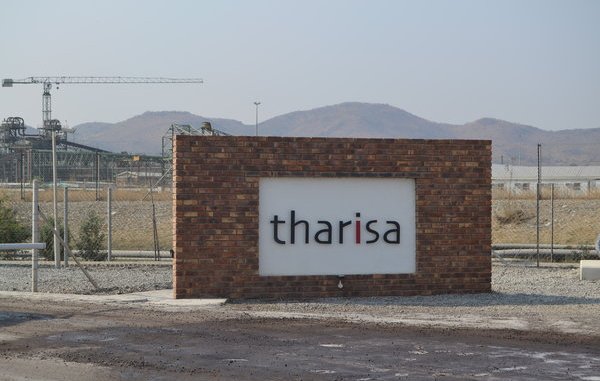Three years after the government of Zimbabwe imposed a ban on chrome ore exports, Tharisa’s Salene Chrome project in Mhondoro Ngezi remains under care and maintenance, Mining Zimbabwe can report.
By Rudairo Mapuranga
This continued inactivity has raised serious concerns, as small mining companies in Zimbabwe have already adapted to the ban, producing chrome concentrates to meet the government’s beneficiation policy. In contrast, Tharisa, one of the largest chrome producers in the world, has made little progress in beneficiation, a glaring failure that reflects poorly on the company’s commitment to Zimbabwe’s value addition goals.
In its FY2024 Results Presentation, Tharisa explained that “Salene Chrome (Private) Limited (‘Salene Chrome’) is a development stage, low-cost, open-pit asset located on the Great Dyke in Zimbabwe. Salene Chrome was placed on care and maintenance following the introduction of a ban on exports of chrome concentrates by the Government of Zimbabwe and the business case is pending a review.”
However, this justification fails to account for why a major global chrome producer like Tharisa has not been able to invest in beneficiation facilities within a three-year period. The government’s decision to ban chrome ore exports was intended to push mining companies to add value to the raw materials before export, ensuring that Zimbabwe maximizes the economic benefits of its resources.
Small-scale miners, despite their limited resources, have managed to rise to the challenge, producing chrome concentrates in compliance with the government’s directive. Yet, three years later, Tharisa’s Salene Chrome is still unable to beneficiate chrome into either concentrates or ferrochrome. This is unacceptable for a company of Tharisa’s size, resources, and global standing.
The failure to act raises serious questions about Tharisa’s commitment to Zimbabwe’s economic growth and the role of local beneficiation in strengthening the mining industry. While other companies, including small-scale miners, have made significant investments to meet the new regulations, Tharisa has lagged behind. For a giant in the global chrome industry to still be reviewing its business case for beneficiation three years after the export ban, there is a lack of urgency and possibly a disregard for local policy.
The government’s decision to ban chrome concentrate exports, which came into effect in July 2022, was intended to give producers enough time to invest in beneficiation. The cabinet even noted that the investment in beneficiation technology was low-cost and relatively simple to implement. Yet, Tharisa has failed to capitalize on this window, leaving its Salene Chrome project stagnant and unable to contribute to the country’s goals.
Zimbabwe’s chrome sector has the potential to be a key player in the global market, particularly as stainless steel production – the main consumer of chrome – has seen a resurgence, with global production increasing by 6.3% in the first half of 2024. China, which accounts for a significant share of this production, remains a major market for Zimbabwean chrome. However, Tharisa’s inaction has meant that it cannot fully participate in this booming market.
The company’s failure to move forward on beneficiation is even more perplexing given its strong global presence. South Africa supplies 80% of China’s chrome needs through companies like Tharisa. Despite logistical challenges and supply chain disruptions in Southern Africa, the company has managed to deliver on its commitments in other regions, making its inaction in Zimbabwe even more concerning.
While the Zimbabwean government has continued to support local smelters and promote beneficiation as part of its national economic strategy, the smelting capacity is at risk of shrinking due to insufficient feedstock from companies like Tharisa. If large-scale operators like Salene Chrome fail to step up and increase chrome beneficiation, the entire sector could face bottlenecks, ultimately undermining the country’s efforts to build a thriving mining industry.
Three years is more than enough time for a company of Tharisa’s caliber to comply with Zimbabwe’s beneficiation policies. Small-scale miners have proven that it is possible to adapt to the regulations and continue operations successfully. Tharisa’s failure to do so is uncalled for, and it needs to be held accountable for not prioritizing the local beneficiation of chrome.
The government and industry stakeholders must now demand that Tharisa expedite its efforts to bring Salene Chrome into full operation, including beneficiation. Zimbabwe cannot afford to have one of its key players in the chrome sector idling, while smaller players make progress. If Tharisa does not act swiftly, it risks not only damaging its reputation but also hindering the country’s economic development goals.




